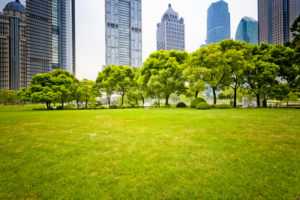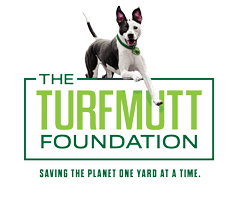Latest Posts
- Have a purpose when backyardingAugust 5 2021
- Study: Time outside alters our microbiomeAugust 4 2021
- Happy National Mutt Day from Mo-MoJuly 27 2021
- New home? Avoid these common mistakes in your yard.July 26 2021
- Infographic: Plan a backyard staycation this summerJuly 22 2021
Categories
Archive
April 20th
The TurfMutt Foundation urges public green spaces remain open

With much of the country under stay-at-home orders, the TurfMutt Foundation, which directs the TurfMutt environmental education and stewardship program, urges public officials to allow people to get outdoors in public green spaces. This includes parks, public gardens, school yards, golf courses and other community green spaces. For a decade, the TurfMutt Foundation has advocated the importance of managed landscapes and other green space as critical to human health and happiness, and which should be available to everyone.
“The ability to get outside, reconnect with nature and de-stress is even more critical today than ever before,” says Kris Kiser, President of the TurfMutt Foundation. “During this pandemic, your yard is safe green space, but if you don’t have one—and many people in cities don’t—parks and other public green spaces should be available so long as people act responsibly and follow all guidelines for physical distancing.”
Research has proven the importance of green space for physical and mental health and well-being. In fact, it is a lifeline for people in cities who do not have access to a home yard. Unfortunately, public parks and gardens have come under scrutiny and a stage for “social distancing shaming” and infringement crackdowns.
“People are compressed in the city, and at some point you have to give people an avenue to get outside, get some fresh air and respite from being indoors,” says Kiser. “It’s incumbent on people to be responsible, but not allowing them to go to the park will only exacerbate the stress families feel from being cooped up during stay-at-home orders. You can’t have people locked in forever.”
The pandemic also has shown a general lack of local green space, which is only exacerbated when parks, trails and public gardens are closed to the public. According to the Trust for Public Land, 100 million people (28 million children included) in the U.S. do not have a neighborhood park within a 10-minute walk from home.
Even small neighborhood green spaces, including plazas, triangles, and other open spaces could be helping during the pandemic “but only if shaming of people trying to get outside stops,” adds Kiser. “We should be urging physical distancing and responsible behavior, but by all means allow people to de-stress through the calming effects of trees, grass, shrubs and plants.”
Kiser is hopeful that the country will emerge from the pandemic with a “greater appreciation for our landscapes and see more people getting outdoors.”
He also adds when the country turns a corner on the pandemic “we need to address green space equity—or lack of it—with more access, funding and space. We hope that cities realize the importance of their green space, and officials reinvigorate our critical green infrastructure. Access to nature shouldn’t be just for certain people. It should be available to all, for the benefit of all. A stressed-out public doesn’t do anyone any good.”
To learn more, go to TurfMutt.com.





